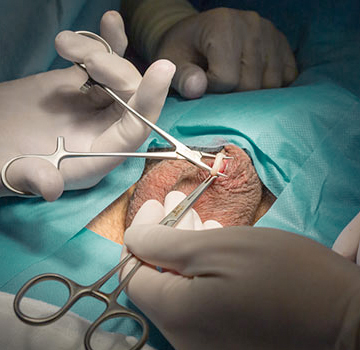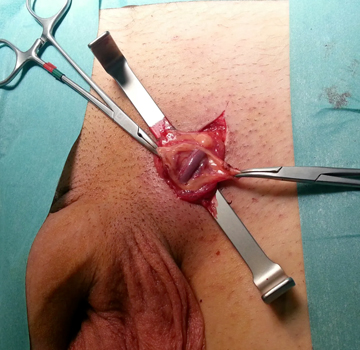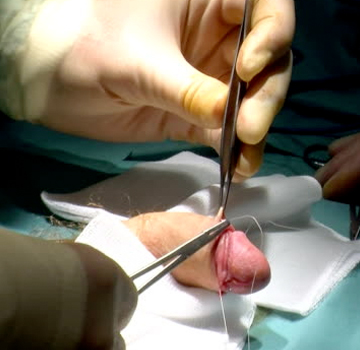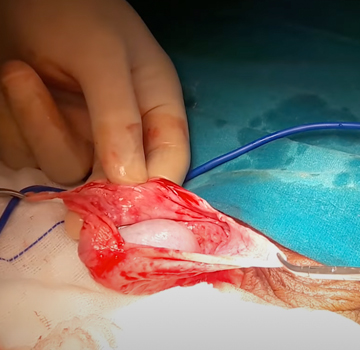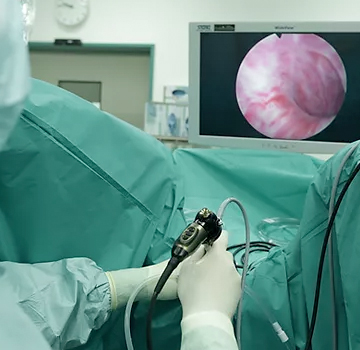Urological
Surgery
It includes surgeries such as the complete or partial removal of the kidney due to the presence of tumors, the removal of kidney stones, the reconstruction of the ureters, among others.
Vasectomy
It is the surgical procedure for male contraception which is considered permanent.
¿How it is performed? The current technique is known as a no-scalpel vasectomy which is performed in the office under local anesthesia, blocking the vas deferens on each side. A 2-cm incision is made in the middle of the scrotum and both vas deferens (duct through which sperm travel) are located, cut and tied to prevent its passage.
¿How long does the procedure last?On average it lasts 20-40 min.
¿What are the possible complications? It is a procedure with few complications, presenting very rarely bleeding and local infection.
¿What care should I have after the procedure? Relative rest for 24 hours after the procedure and 7 days without strenuous exercise.
¿How effective is it? It is 97-100% effective.
Varicocele
It is the dilation of the veins within the loose skin that supports the testicles (scrotum). These veins carry oxygen-depleted blood from the testicles. A varicocele occurs when blood pools in the veins instead of effectively flowing out of the scrotum. Varicoceles typically form during puberty and develop over time. They may cause some discomfort or pain, but usually do not cause symptoms.
A varicocele can cause poor development of a testicle, low sperm production, or other problems that can lead to infertility.
The treatment of varicocele is through: Surgical intervention: An operation is performed in which through a small incision in the groin, under anesthesia, the veins that present the problem are tied. This procedure in most cases does not usually present complications.
Circumcision
It is a surgery that is done to remove the foreskin of the penis. The foreskin is the fold of skin that covers the tip of the penis, sometimes there is a medical need to perform circumcision; for example, when the foreskin is too tight to move back (retract) over the glans penis.
Circumcision may have a number of health benefits, including easier hygiene and a lower risk of urinary tract infections.
Circumcision does not affect fertility and is not generally believed to increase or decrease sexual pleasure in men or their partners.
Hydrocele
The hydrocele is usually detected as an increase in testicular size and although it is a benign problem, it usually generates enormous concern.
A hydrocele is usually painless caused by a buildup of fluid in the thin lining that surrounds the testicle. In adults it can appear as a consequence of an inflammatory problem or another type of previous testicular disorder, as well as in response to scrotal trauma.
The treatment of choice is surgery called hydrocelectomy. If you have been diagnosed with a hydrocele or have any of the problems described, contact us so we can help you.
Prostate
The prostate is a gland that is part of the male reproductive system. Helps make semen, the fluid that contains sperm. The prostate surrounds the tube that carries urine from the bladder to the outside of the body. A young man's prostate is about the size of a walnut.
With age, it slowly increases in size. If it gets too big, it can cause problems. Prostate enlargement is very common after the age of 50. With age, there is a greater chance of having prostate problems.
Minimally invasive urological surgery
Minimal access surgery, also called minimal approach surgery, can be defined as the set of diagnostic and therapeutic techniques that by direct or endoscopic vision or other imaging techniques use natural pathways or minimal approaches to introduce tools and act on different human body parts.
At Gastro Wellness we have a team with extensive experience in these techniques for the resolution of urological pathologies.

